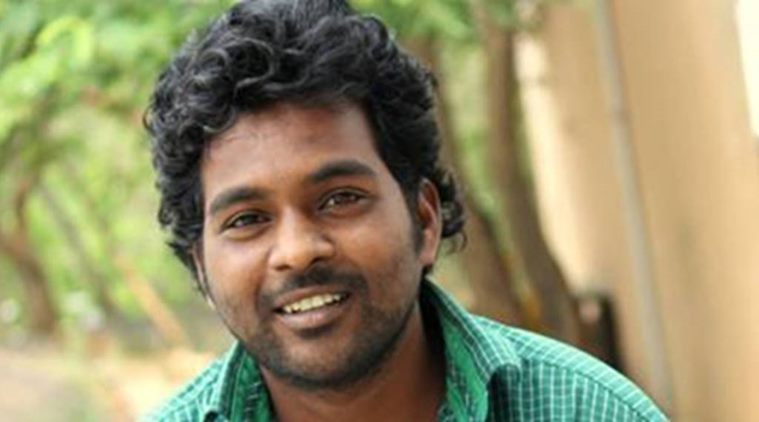
Rohith Vemula
Rohith Vemula was the leader of a Dalit student organization, Ambedkar Student Association at the University of Hyderabad. He was a bright student on a scholarship in a prestigious PhD program, interested in science studies. His coursework complete, he had just received approval for his research proposal. His dream was to become a science writer like Carl Sagan.
Because of a complaint by the rival, right-wing student association ABVP’s leader N. Susheel Kumar, that he had been assaulted by Rohith and his friends, Rohith had become the target of three different investigations by local neighborhood police and the university. Starting in September 2015, the Union Minister for Human Resources Office had written three letters to the university pressuring them to take action against Rohith and four other ASA members. One faculty member asked, why these investigations about a minor student-student altercation were so drawn out: why was it not settled swiftly? After all, the doctor who examined the claim to assault by the ABVP student said he had one small bruise on his body and did not show any signs of assault.
The altercation was politicized from the start. The ABVP is allied to the RSS, an extremist Hindu nationalist organization popular with upper-caste Hindu communities, whose political arm is the BJP (the political party currently in power in India). India’s largest student union, the ABVP has in recent years been known for disrupting campus dialogue on Kashmir (Pune), secularism, and, at Rohith’s campus, the ASA’s screening of a film on Hindu-Muslim riots in Muzaffarnagar in north India. The scuffle involved both ABVP and ASA students when the latter had demanded an apology for the disruption. Only five ASA students were singled out and suspended in August 2015 by the university.
Subject to three institutional investigations, suspended from the university for seven months while these were ongoing, Rohith’s situation kept worsening. His scholarship was withheld for these seven months, a terrible financial hardship for him and his poor family, which earlier subsided largely on his mother’s daily wage labor of sewing and tailoring. Following three letters from the Ministry of Human Resource Development urging action against these five students, on 16 December 2015, these student-activists were expelled from their dorm, and barred from entering administrative buildings and shared spaces on campus, such as the library. This institutionalized discriminatory treatment in the very educational institution that is supposed to enshrine equal and democratic rights, was part of his long experience of discrimination, “in studies, in streets, in politics, and in dying and living.” As he wrote in his suicide note, “Never was a man treated as a mind. As a glorious thing made of star dust.”
Denied dignity and human rights, Rohith and the four other expelled students launched a 14-day sleep-in strike to protest their treatment. On the fourth day of this strike, Rohith died, gently asserting, in what Manash Bhattacharjee notes is the clarity of a suicide note, “Do not shed tears for me. I am happy dead than alive.”
Following the suicide and related media protests across India, the suspension of the other four Dalit students was reversed. Only proving Rohith’s suggestion, that his birth as a Dalit drove the harassment he faced; though not just that, but also the fact that he spoke up as a Dalit subject, as an activist, and he exercised his constitutional rights of free speech, because he thought he lived in a democracy. But he spoke up in a political climate that has become increasingly inhospitable to dissident voices, be they Muslim, Dalit, secularist, or feminist. His treatment violated the equality promised in our constitution, and his young life was lost needlessly, as Ananya Vajpeyi writes, “to our eternal shame.”
Rohith’s mother has rejected the state’s offered payment of INR 8,00,000 (US$ 11,838) as compensation for Rohith’s death. Given the withholding of the stipends that would have paid for food and living expenses, and driving him to suicide, this seems like a cruel joke. She demands that the politicians and officials involved be held accountable and responsible for driving him to this.
Rohit Venkatramakrishnan has written that Rohith’s death indicts us all. When death or the risk of death seems happier than life to a young student in Hyderabad, or Syria, or a young Buddhist monk in Tibet, we are looking at a deeply traumatic, and multi-layered historical experience of persistent cruelty, violence, dispossession, and dehumanization. Rohith’s death is an indictment not only of the society, but also of the state and its Delhi ministries, that failed to protect the dignity and human rights of some of India’s most vulnerable citizens. In 2016, this points to a crisis in caste relations, minority experience, and inequality in India that needs to be addressed now, by all of us.
(Photo Credit: The Indian Express)